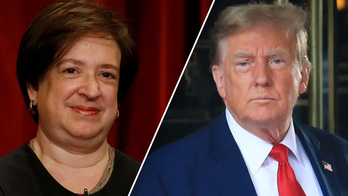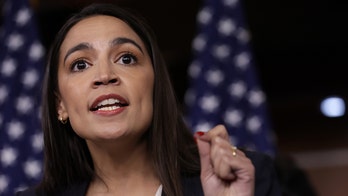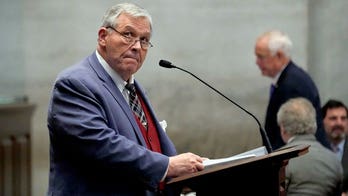WASHINGTON – The GOP-led Senate plowed ahead Wednesday on a $612 billion annual defense policy bill despite a White House veto threat and the Democratic leader's claim that it is an exercise in futility.
"The president said he's going to veto it so I think it really is kind of a waste of time," said Senate Minority Leader Harry Reid, D-Nev.
Republicans challenged Reid, saying that supporting U.S. troops is not a waste of time.
"By tradition, this legislation has been passed with bipartisan support, reflecting our mutual commitment to national security, but apparently Sen. Reid has decided this year that doing his job is a waste of time," said Rep. Kevin McCarthy, R-Calif., the majority leader in the House, which has passed its own version of the defense policy bill.
Sen. John McCain, R-Ariz., chairman of the Senate Armed Services Committee, said he expects at least 100 to 200 amendments to be introduced to bill on the Senate side. He predicted a vote by the end of next week.
The White House takes issue with several provisions.
Topping the list is a move to put billions of dollars of defense spending into an emergency war-fighting fund, which is not subject to spending limits. Democrats say this is largely an end-run around the spending caps that Republicans and Democrats imposed in 2011. President Barack Obama said he will not support a budget that locks in the limits.
"There is budgetary fakery in here," said Sen. Bill Nelson, D-Fla., who opposes the bill along with Rhode Island Sen. Jack Reed, the ranking Democrat on the committee.
McCain said it wasn't his first choice to put $38 billion in the war-fighting account, but that the spending limits are the law. Unless the caps are lifted, he said the bill's approach is the only way to give the president every dollar he requested and defense officials insist is the minimum required to defend the country.
McCain said it's his job to avoid putting U.S. troops at risk and without the additional funds, "we do that."
He called the White House veto threat "misguided and irresponsible."
Senate Majority Leader Mitch McConnell, R-Ky., said he doesn't back the spending caps either, especially because they have hindered the ability to modernize the armed forces and meet the demands of current operations. But he accused the White House of "saber rattling" and said blocking the bill was not in the national interest.
"No defense authorization bill will ever be perfect, but this is legislation that reflects a good faith effort to authorize programs in the political reality we live in," McConnell said.
Democrats are drafting an amendment to the bill to lift the cap, shift the war-fighting money to the core defense budget and set aside an equal amount for domestic programs.
Obama also is opposed to parts of the bill that would prevent a new round of base closures, bar the retirement of the A-10 aircraft, which provides close air support for ground troops, and push the White House to provide lethal assistance to Ukraine forces fighting Russia-backed rebels — something Obama so far has refrained from doing.
The White House also opposes provisions that it considers unwarranted restrictions on Obama's ability to close the U.S. prison at Guantanamo Bay, Cuba. Obama says keeping Guantanamo open weakens national security by draining resources, emboldening violent extremists and damaging U.S. relations with allies.




